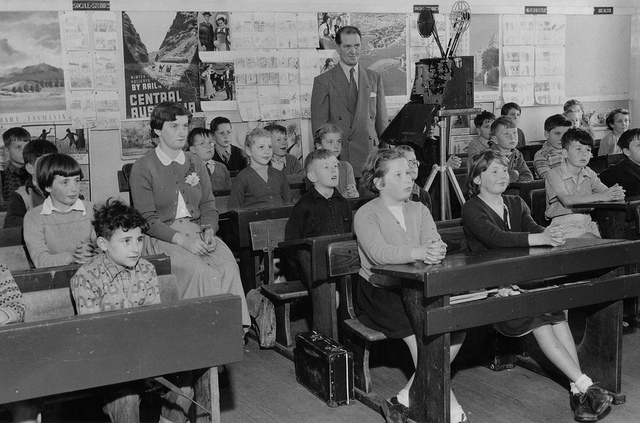EQUIP: Ed Department Seeks Experimental College-Provider Financial Aid Partnerships
Published by: WCET | 10/26/2015
Tags: Coding, Collaboration/Community, Financial Aid, U.S. Department Of Education
Published by: WCET | 10/26/2015
Tags: Coding, Collaboration/Community, Financial Aid, U.S. Department Of Education
Students at “non-traditional providers” of postsecondary education will have a chance to earn federal financial aid through experimental partnerships recently announced by the U.S. Department of Education. To participate, providers are expected to partner with “traditional” institutions that currently offer federal aid.
If you are interested, you should consider participating.
The Rise of the “Non-traditional Providers”

Sometimes called “alternative providers,” there has been much growth in opportunities for students to obtain knowledge and skills outside of the ivy-covered halls of colleges and universities. Examples of such providers include coding “bootcamps” (Seedpaths, Epicodus), StraighterLine, Khan Academy, and some MOOCs. There are many more.
ACE even created the Alternative Credit Project to connect students with colleges that may grant credit for courses offered by the providers. The site could be a bit more user friendly, but it’s a start.
Presidential candidates across the political spectrum have taken note. Hillary Clinton proposes increased access to federal aid for students in these programs. Marco Rubio goes farther: “Within my first 100 days, I will bust this cartel by establishing a new accreditation process that welcomes low-cost, innovative providers.” Not sure about our being a “cartel,” but he is referencing existing colleges and universities.
We all need to pay attention as there is much to laud and much to question with these providers. I suspect many in higher education do not have these emerging competitors on their radar. While this experimental program may ultimately be the camel’s nose under the tent, the growth of these providers is a story for another day.
The Department of Education’s EQUIP Program
A few days ago, Secretary Arne Duncan and the Department launched an “Experimental Sites Initiative” (ESI) to allow colleges to partner with non-traditional provider. The ultimate goal is to increase federal aid for (and ultimately employment of) low income students:
“The Educational Quality through Innovative Partnerships (EQUIP) experiment is intended to encourage increased innovation in higher education through partnerships between the participating institutions and nontraditional providers in order to learn whether those partnerships increase access to innovative and effective educational programs, particularly for students from low-income backgrounds; assess quality assurance processes appropriate for non-traditional providers and programs; and identify ways to protect students and taxpayers from risk in this emerging area of postsecondary education.”
Colleges will partner with the providers to offer at least 50% and up to 100% of a program:
“The experiment outlined in this notice will allow participating institutions to provide title IV aid to otherwise eligible students pursuing a program of study for which 50 percent or more of the content and instruction is provided by one or more title IV-ineligible organizations (non-traditional providers). As part of the experiment, the Secretary will provide participating institutions with certain statutory and regulatory waivers…”

The Fine Print
You can find the details for participating in EQUIP in the Federal Register. Meanwhile, some other details that you should know that I gathered off a call they held for interested parties on October 23:
There are many details to the proposal. Read the notice in the Federal Register. The Department is creating an FAQ. When the FAQ is published, I will attache the URL as a comment to this post. If you would like to submit a question or ask to receive more information, send an email to: innovation@ed.gov.
It’s a Start, But…
This is a start, but a cautious one. Our friends at Cooley, LLP wrote an analysis of the program in which the observed: “Contrary to some press reports, the ESI is a very narrow program, reflecting longstanding concerns about abuse of the Title IV programs and a general discomfort within the Department over the growth of online programs and for-profit institutions.”
One concern I have is that the “regular and substantive interaction” requirement remains in place. That expectation severely limits many adaptive learning, self-paced programs, MOOCs, CBE programs, and others from participating. Additionally, I imagine that Gainful Employment requirements will kick-in for some institutions that are unfamiliar with complying with that regulation.
Participate!
Even with the limitations, I urge WCET members (both institutions and “non-traditional providers”) to participate.
We gotta start somewhere.
Russ Poulin
Director, Policy & Analysis
WCET – WICHE Cooperative for Educational Technologies
rpoulin@wiche.edu
Support our work. Join WCET.
Photo credits:
Hand with testube: http://www.morguefile.com/archive/display/718592
Teacher with Projector by Public Record Office Victoria: https://www.flickr.com/photos/public-record-office-victoria/8165522990/in/photostream/
2 replies on “EQUIP: Ed Department Seeks Experimental College-Provider Financial Aid Partnerships”
[…] disseminate information about the program last fall. Together with the Community College of Denver, we hosted an in-person question and answer session with David Soo, who runs the program for the Department. We will have a session on the EQUIP program at the WCET […]
[…] have reported in the past about the Experimental Sites Initiatives (such as EQUIP) that the U.S. Department of Education initiated in the past. These programs allow institutions to […]